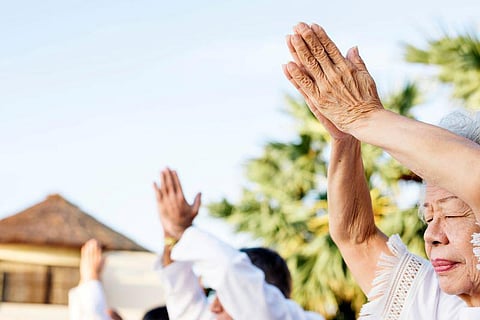THURSDAY, Oct. 26, 2023 (HealthDay News) -- Tai chi training has a long-term beneficial effect on Parkinson disease (PD) disability and symptoms, according to a study published online Oct. 24 in the Journal of Neurology, Neurosurgery & Psychiatry.
Gen Li, from the Shanghai Jiao Tong University School of Medicine, and colleagues examined whether long-term tai chi training can maintain improvement in patients with PD. The analysis included patients with PD with tai chi training (143 individuals) and patients with PD without exercise (187 individuals) who were followed from baseline in 2016 to June 2021.
The researchers found that tai chi training reduced the annual changes in the deterioration of the Unified Parkinson's Disease Rating Scale and delayed the need for increasing antiparkinsonian therapies. The tai chi group had a significantly lower annual increase in the levodopa equivalent daily dosage. Additional benefits seen with tai chi training included motor symptoms, nonmotor symptoms, and complications.
"Tai chi could be applied in the long-term management of PD," the authors write. "The long-term beneficial effect on PD could prolong the time during which patients are nondisabled, resulting in a higher quality of life, a lower caregiver burden, and less drug usage."
Abstract/Full Text


